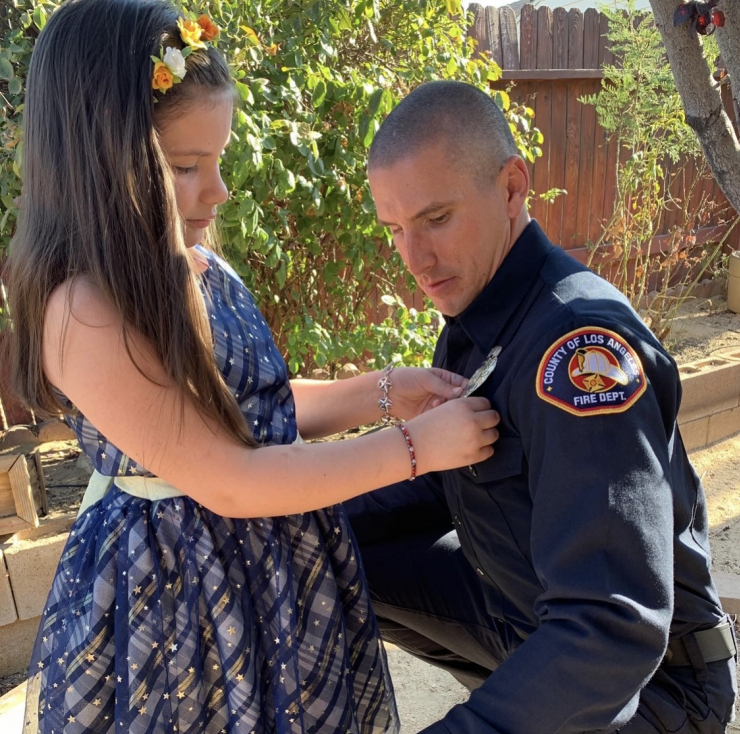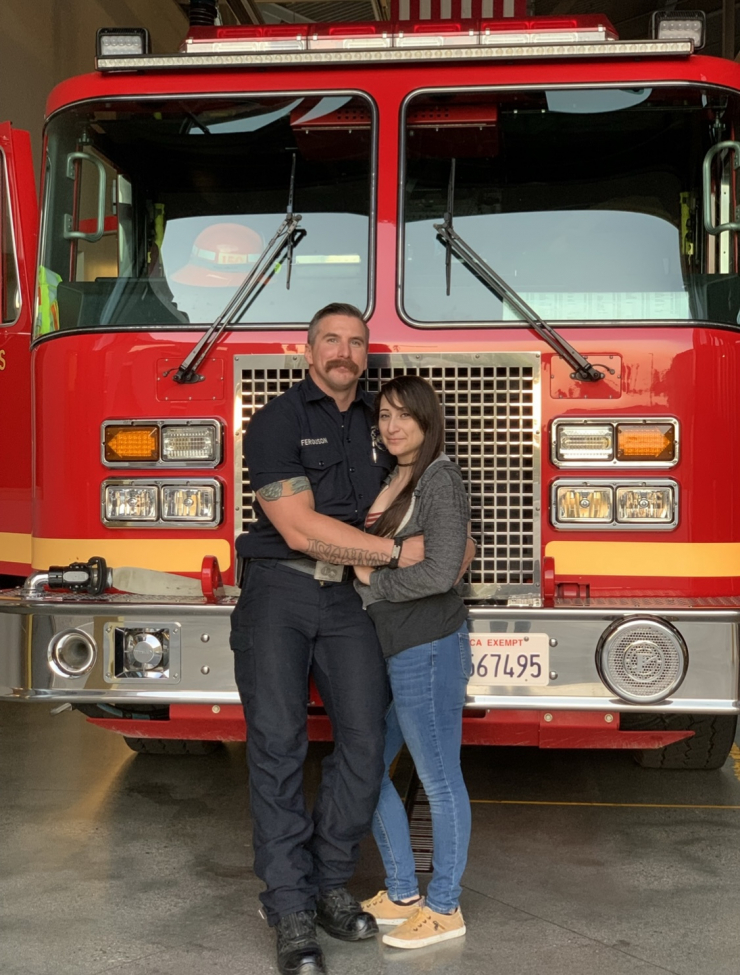
But one day, as he thumbed through the pages, he stopped at one in particular, closed his eyes for a moment, and caught his breath.
“What’s the bravest thing you’ve ever said?” asked the boy. “Help,” said the horse.

His mind flashed back to all of the instances where help was all he needed.
First, his childhood, growing up in a broken home and being subjected to abuse and neglect. To this day, he is still being treated to repair a broken jaw and replace teeth. He yelled for help at the top of his lungs, but no one heard.
Then came high school graduation, after which James enlisted first in the United States Army, spending a short time in service before being discharged for a training injury. He had surgery, then enlisted in the United States Marine Corps, where he would serve for the next eight years.

James deployed multiple times, seeing combat in Fallujah, Iraq, and Marjah, Afghanistan. “My second deployment was to Afghanistan in November 2009,” he said. “We were out there with recon, flying helicopters through the mountains. It was freezing cold, and we were miserable. Everybody got trench foot, I remember that.”

“We came back for Christmas to Camp Leatherneck, and I got attached to Lima Company of the 3/6 Marines,” James continued. “That’s when I got hurt from an RPG, which caused spinal trauma and a Traumatic Brain Injury (TBI).”
That diagnosis came much later after James returned to the States. TBI wasn’t even listed as an injury through the military yet – that wouldn’t be widely recognized until 2011. He needed help but didn’t even bother to ask.
Over time, that brain injury would worsen, causing tinnitus and hearing loss.
At this point, James met his future-wife Helena, and when he got the news that she was pregnant with their first child, he decided to leave active service and transition into a medical battalion.

He spent the rest of his time off contract but still served as a Platoon Sergeant. When all was said and done, he had given eight years to the Marines.

The next few were even harder.
James was struggling, trying to navigate the effects of post-traumatic stress at a time when most people didn’t even know what it was. At one point, they pawned and sold everything they owned to make sure their daughter Ashlynn was taken care of. “We were living on bagged rice,” he said. “But Helena and I both came from hard childhoods and didn’t want that for her.”
He decided to go to EMT school and got hired by an ambulance company, working 9-1-1 calls for the next six years. He worked his way up and eventually earned a spot as a firefighter for the Los Angeles County Fire Department in 2020.


On paper, it looked like they were fine, like help was the last thing they needed. James received the Award of Valor, Exemplary Service Award, and several other commendations for his bravery and dedication to the citizens of Los Angeles County.

But inside, James was in trouble.
“As he had dedicated his life to helping others, he had been sinking in his own mind,” said his wife, Helena.

James’s station is located right off a major interstate highway, so they receive all of the freeway calls. The number of fatalities alone has been staggering.
“There was one particular call that just sent me over the edge,” he said. “It was so senseless. We responded to a call about a 20-year-old woman who had been prescribed birth control pills for the first time. She had an adverse reaction to the medication, and it killed her. I just couldn’t shake that call.”

“It got to the point where I couldn’t see any more trauma,” James said. “It’s like it’s just kept piling up inside me, and it’s stacked all the way to the top. I can’t take anymore - I’m filled with it.”
On Memorial Day weekend last year, James went into another room away from his wife and daughter and attempted to take his own life. He was, thankfully, unsuccessful. Then, on Christmas Eve, he tried again.
When he was found and rushed to the hospital, he saw the faces of the medical staff that he knew so well from all of those emergency response calls, silently wiping tears from their eyes as they worked to save his life.
Miraculously, he survived. With the support of his fire captain, James was placed on ordered absence with pay to receive therapy and professional treatment. Once again, James demonstrated incredible bravery - this time, for himself.

It has not been an easy journey, and James has to reconcile a career he’s worked so hard to achieve with the debilitating trauma that comes with it. There’s no quick fix or simple answer. But for James, telling his story and realizing that he’s not alone has been huge.


He and Helena have been aware of Chive Charities for a long time – they both use theCHIVE app pretty regularly. And though they never anticipated being on this side of the process, they realized they needed a little more support than they could handle themselves. They needed help.

It’s been difficult for James, that’s clear. But as his spouse, Helena has faced a lot, too. That’s why when James participated in a treatment program, she wanted to join a 4-day, 3-night intensive therapy session for spouses.
The retreat is offered to spouses of first responders who have attempted to take their own lives and acts as a way for spouses to begin to heal from their own trauma relating to the incident(s), as well as a way to prepare spouses with information on how best to support their loved ones in the journey to recovery ahead.

Thanks to your one-time and monthly donations, we covered that cost of $2,000. And after the water line between their home and street broke (which insurance does not cover), we funded that repair, too, for $5,500. All in, your donations contributed to $7,500 in aid to James and Helena. But the impact really goes far beyond the money.

“James and I think it’s very important to share the reality of mental health and the importance of keeping up with the maintenance,” said Helena. “Suicide awareness needs to be pushed more for our Veterans and first responders. Thousands of people are struggling silently, and unfortunately, thousands more don’t make it out alive.”
“I hope that by sharing our story, we save a person from making the same mistake before it’s too late. I hope that sharing our story will give someone the strength to ask for help. Most importantly, I hope that sharing saves another family from losing a loved one. There are people out there who actually care and who are willing to help.”

You’re part of those people actually caring, actually helping. Just like the horse in the book, James did the bravest thing he could do and asked for help. And later, when the mole asks the boy a question, his response reminds us of all of our donors. “What do you want to be when you grow up?” asked the mole. “Kind,” said the boy.

Help is out there. You only need to ask. For those willing to give it, DONATE HERE.
If you or someone you know is struggling or in crisis, help is available. Please call the suicide prevention hotline at 988 for 24/7 call, text, and chat access to trained crisis counselors.